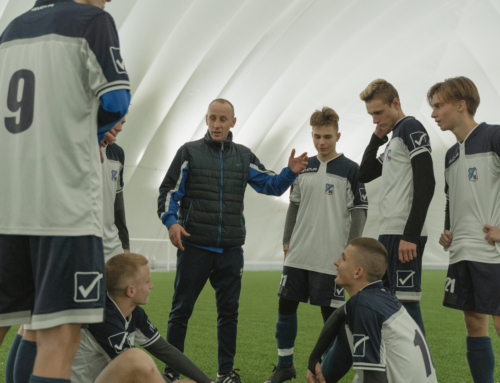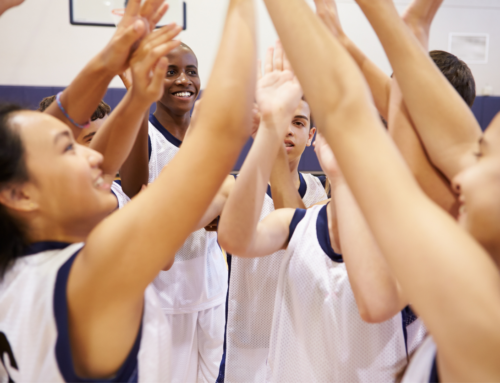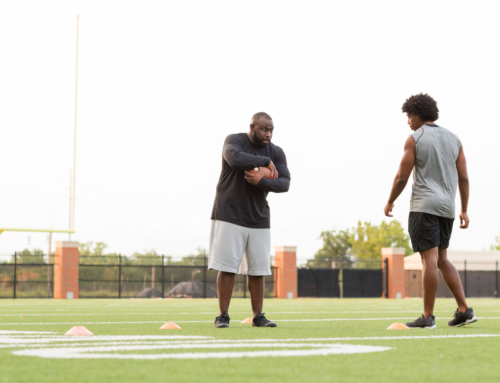As you go through the recruiting process, keep these 15 important facts about the recruiting process in mind. They may not all apply to your experience, but they’re all important things to keep in mind during your recruitment.
- The National Letter of Intent (NIL) is a binding agreement between you and an NLI member institution. Signing an NLI guarantees you a scholarship at that school for at least one year.
- Invitations to a camp, a general admissions letter, and a scout randomly attending a game do not indicate that you are being recruited by a given school.
- It’s never too late to boost your GPA. In fact, your GPA in more recent semesters carries more weight with coaches and administrators than your GPA from earlier semesters. The higher your GPA then the better chances you’ll have of being recruited by more coaches. Coaches know academic responsibility in high school will translate into more responsible student-athletes in college.
- While NCAA Division III programs do not offer athletic scholarships, they’re still great opportunities for student-athletes, as the grants-in-aid and non-athletic scholarships they do offer often make them more affordable than a DI or DII school.
- If a scholarship is offered, always get that offer in writing. You are not guaranteed a scholarship until you sign your letter of intent on National Signing Day, but a written offer will provide some level of certainty.
- Receiving a scholarship is one thing, but to keep it you need to perform on the field, maintain the required GPA to stay academically eligible, and follow NCAA or NAIA regulations regarding student-athletes.
- Division I coaches are prohibited from sending “recruiting materials” to a student-athlete prior to his or her junior year of high school. However, coaches can, and often do, send questionnaires, camp brochures, and general information about the college.
- Every step of the recruiting process matters. The pressure may be on towards the end, but the actions you take and contacts you make early on can play a big role in the offers you receive.
- Do your research. The schools you’re interested in may not need an athlete at your position in a given year, so look into as many schools and contact as many coaches as possible to find the right fit for you.
- Though they don’t offer athletic scholarships, a Division III school may wind up making you the best package deal. Know the details of every scholarship, grant, or financial aid package you’re offered so that you’ll be able to determine the opportunity that’s best for you.
- Coaches base the majority of their initial impressions on evaluation of video they receive from known sources. If they see an athlete that interests them, that’s when they may consider an in-person evaluation.
- A bigger net will bring you more opportunities. Instead of fixating on the glamour schools, consider every option, big or small, and find the opportunity that offers you the best fit.
- Make your official visit more than just about the team and the program. Get a sense of the campus atmosphere, go to a class, visit practice. Get a feel for the school to ensure it’s where you’d want to be, even if you weren’t on a scholarship there.
- Before you consider attending a camp, ask yourself if the coach has contacted you and specifically invited you to that camp and if you’ve had any direct contact with any of the coaches participating in the camp. If the answer is no to both questions, then the only benefit you’ll derive from attending that camp is extra experience.
- A Division I school isn’t always better. Check out different campuses and schools big and small. Beyond the team, factor in chances for playing time, the size of the school and the campus, and the academic opportunities available. You may discover that a smaller school offers you a better opportunity.
For other great recruiting information in addition to these 15 important facts about the recruiting process, visit https://stacksports.captainu.com/college-recruiting-101/.




